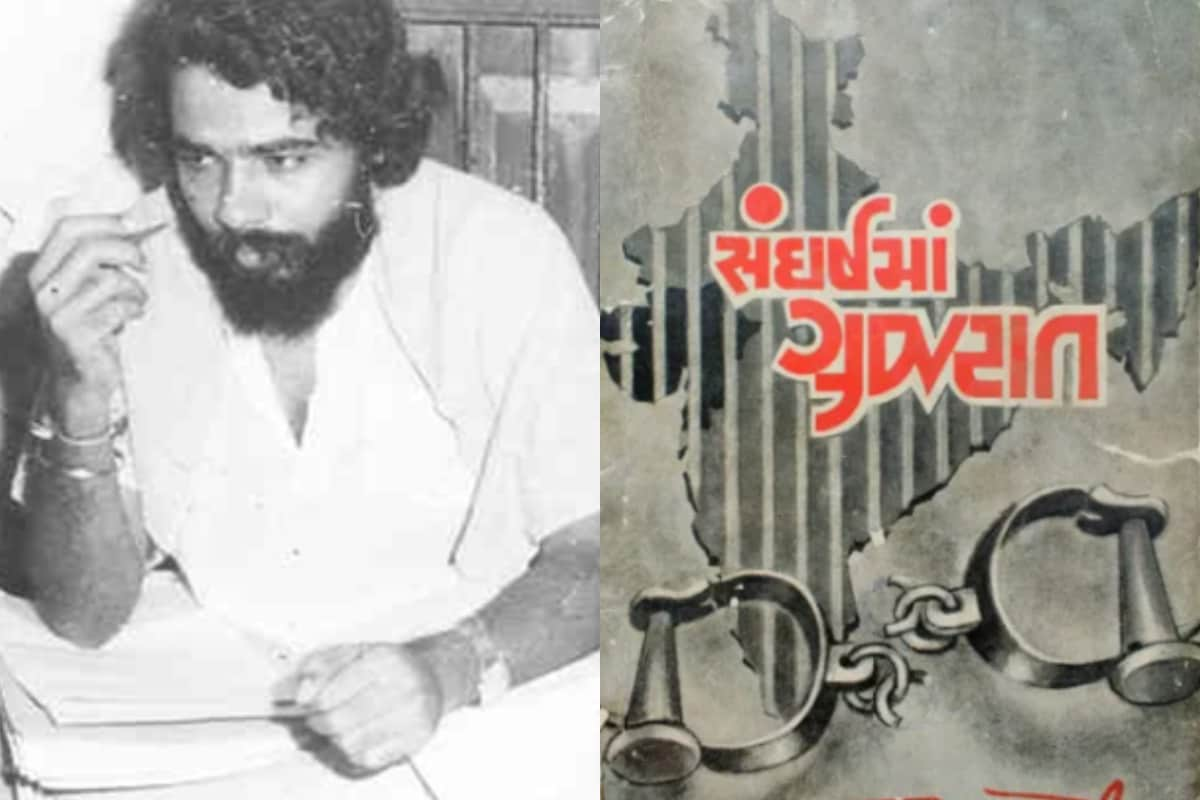PM Modi, who was a young RSS pracharak in 1975, not only swore by the Constitution, he also managed to evade arrest and spread the anti-Emergency message through different means.
As India marks 49 years of the 1975 Emergency on Tuesday, Prime Minister Narendra Modi, who called it a “blot on democracy” hit out at the Congress for trying to corner his government with protests holding the Constitution copies in their hands. Not many know how PM Modi played an instrumental role in the Rashtriya Swayamsevak Sangh’s (RSS) resistance against the Emergency that was imposed by then prime minister Indira Gandhi.
PM Modi, who was a young RSS pracharak in 1975, not only swore by the Constitution, but he also managed to evade arrest and spread the anti-Emergency message through different means.
With the Indira Gandhi government having imposed strict censorship on the press, Modi organised public readings of the Constitution in Gujarat and distributed other literature to inform the public about their rights and the excesses of the government.
Rather than circulating the anti-Emergency material directly which would endanger the karyakartas as well as the people, Modi devised a plan where the material and booklets would be kept at the Hair cutting shops so that whoever would come there would get a chance to discreetly read or circulate the material.
He also ensured that the material was given to saints, preachers and priests who would take it across rural India and ensure that the fire of democracy burned brightly in every corner of the country and within every single community.
How Modi Became A Prominent Face of Resistance in Gujarat
In 1974, Gujarat saw the rise of ‘Navnirman Andolan’ led by students as the state was stuck in a vicious cycle of inflation and a government apathy. Modi, who wasn’t even 25 years old then, became a prominent face of this protest with his dynamic and enigmatic personality, coupled with his oratory skills and bond with the students.
Modi also penned a poem on the might of students and the people coming together to oppose the draconian imposition of the Emergency. Modi has described the Emergency as an unexpected opportunity (Aapda Mein Avsar) that allowed him to work with leaders and organisations across the political spectrum, exposing him to diverse ideologies and viewpoints.
The movement forced the resignation of the Gujarat government and led to the dissolution of the state assembly, setting a precedent for anti-Congress sentiments.
In the aftermath, elections were held, resulting in the first non-Congress government in Gujarat with Babubhai J Patel as Chief Minister, known as the Janata Morcha Sarkar.
Gujarat became a hub for underground resistance against the Emergency, with many activists and opposition leaders finding refuge in the state.
In his own words, @narendramodi has described the Emergency as an unexpected opportunity (Aapda Mein Avsar) that allowed him to work with leaders and organizations across the political spectrum, exposing him to diverse ideologies and viewpoints.The story of the Emergency,… pic.twitter.com/dQrCiW7Fvn
— Modi Archive (@modiarchive) June 25, 2024
Modi and other activists used creative methods to bypass censorship, such as placing anti-government literature on trains to spread it across states. Modi loaded materials related to the Constitution, laws, and Congress government’s excesses onto trains departing from Gujarat to other states. This helped deliver messages to remote places with less risk of detection.
Modi and his colleagues also ensured financial and logistical support for the families of detained activists and kept the morale high among the resistance fighters. They also facilitated communication and coordinated actions between different regions and leaders involved in the movement.
Modi’s Book on The Resistance in Gujarat
Modi also wrote a book called ‘Sangharsh Ma Gujarat’. He was entrusted with writing the book as he had been constantly on the ground, serving the people, organising dissemination of material opposing the Emergency and often putting his own life at risk to ensure the welfare of other karyakartas and leaders.
The book was written in 23 days, without any help from reference material and completely from memory. Modi stopped eating and drank only lemon water while he wrote the book.
Babubhai Jashbhai Patel, the sitting CM of Gujarat who was elected following the Navnirman Andolan in the state, launched Modi’s book.
Another book, titled ‘Aapatkal Ke Senani: Narendra Modi | A Journey of India’s Dark Times and the Struggle for Democracy’ was also published, highlighting Modi’s efforts to spread the message of resistance during Emergency.

